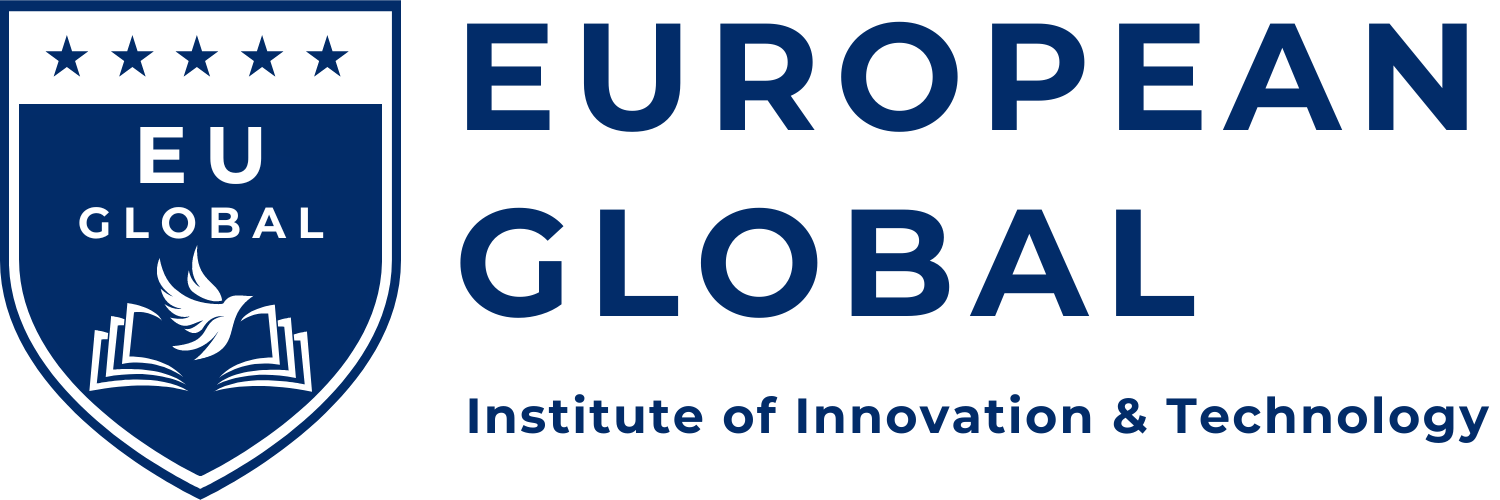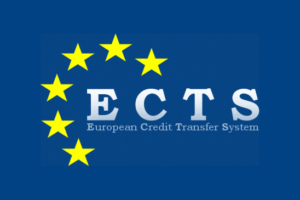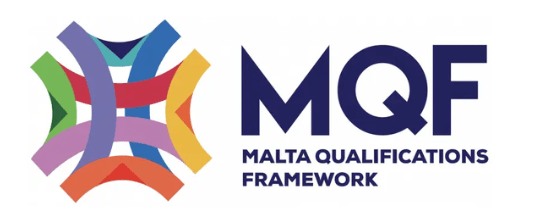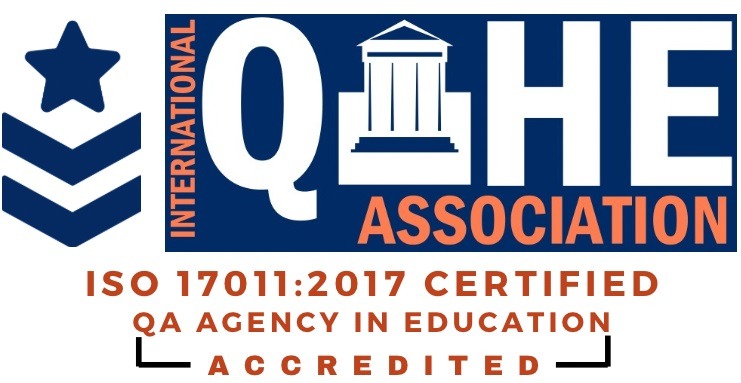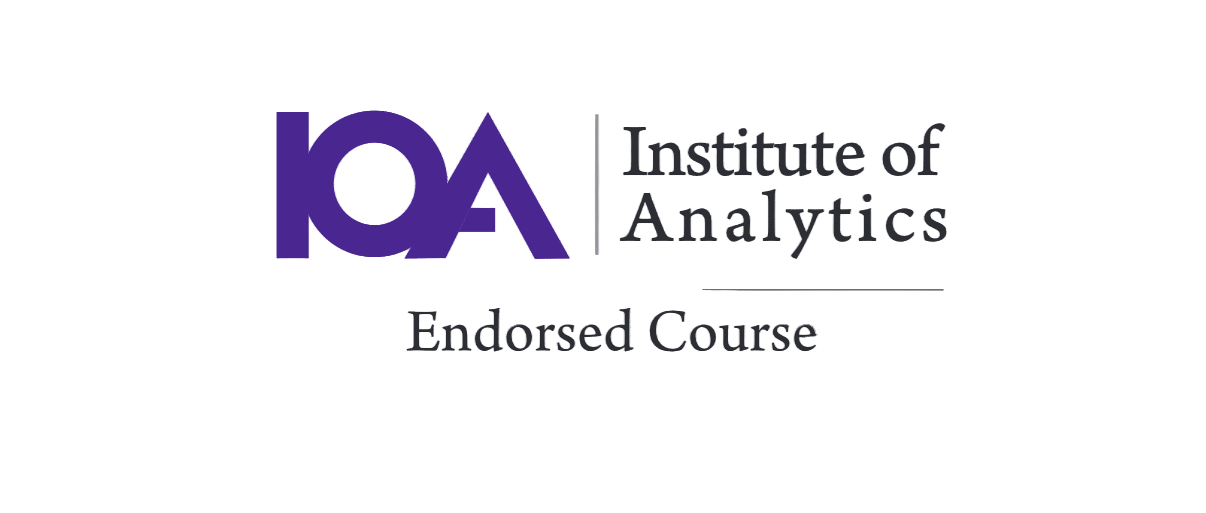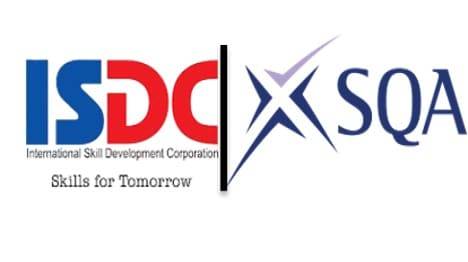Conditional scholarship up to 20%
⚠ Alert: Offer available till 15th of February 2026
Features Of MBA In Operations And Supply Chain Management
Learning Formula
Blended (Live Online)
Intakes
April/October
Language
English
MBA In Operations And Supply Chain Management
Program Details
- Overview
- Why Choose Us?
- Tuition Fees & Program Structure
- Program Awarding Institutions and Title
- Program Completion
- Learning Method
- Benefits
- Learning Outcomes
- Engaging Program Content
- We Support Learning
- Eligibility and Application Process
- Career Pathways
- Sample Certificate
- Faculty
- Tuition
Docenti Global Business School partners with European Global Institute of Innovation and Technology to offer the Master of Business Administration (MBA) in Operations And Supply Chain Management with a 90 ECTS, European Qualifications Framework (EQF) full-degree Level 7 programme.
This programme is fully accredited by Council for Higher Education Development, USA. EU Global MBA in Operations and Supply Chain Management is increasingly relevant as global supply chains become more complex and integral to business success.
This MBA program equips graduates with expertise in process optimization, demand forecasting, and strategic sourcing, enabling them to reduce costs, improve efficiency, and adapt to ever-changing market conditions—skills essential for driving operational excellence in today’s competitive business environment. EU Global follows a few unique concepts for teaching its MBA students.
These are:
●Evidence-based Management.
●Reflective writing.
●Research and Academic Coaching.
●Professional Coaching.
All modules are assessed using project based assignment, and a Capstone Consulting Project and a Master Thesis towards the end of the programme with an industry mentor.
- Our Faculty: We bring a programme delivered by experienced and qualified faculty who are passionate about teaching Operations and Supply Chain Managementwhile guiding professionals through business management principles.
- Our Technology: We ensure that the programme uses state-of-the-art technology and learning platforms, focusing on trends such Industry 4.0, and AI literacy, providing participants with tools that foster business analytics expertise.
- Our Student Support: We offer our students strong support services, such as academic advising, career services, learning technological and physical facility ensuring they excel in their pursuit of our Master programme in Lagos and globally.
- Real-World Impact:
●Transform Challenges into Opportunities.
●Equip yourself to address and solve complex organizational issues, applying skills learned from the MBA in Operations and Supply Chain Management curriculum.
● Drive sustainable change and innovation with a MBA program tailored for professionals. - Global Competence: Lead in a Connected World:
●Master cultural intelligence for cross-border collaboration through the renowned European Global Institute of Innovation and Technology MBA, Masters, and DBA programs.
● Understand the global trends in digital technology and strategies with exposure to international Operations and Supply Chain. - Lifelong Learning: Stay Ahead of the Curve:
●Access post-Master learning activities.
● Participate in global study tours and business matching programs offered by leading globally recognized schools. - Return on Investment: Success You Can Measure:
●Immediate application of skills in your role and noticeable growth in your career trajectory, backed by a prestigious Master degree.
● Contribute tangibly to organizational success, leveraging skills acquired during your affordable online MBA. - Exit Awards/Qualifications: 90 ECTS with WES recognition. Our strategic accreditation allows every learner to earn ECTS credits for every module they study. This allows students to take deferrals, exits and re-join studies and use same ECTS credits for an advanced entry into the programme.
Programme Details
Intakes:
●April and October.
Language of Study:
●English.
Duration:
●One year.
Pricing:
●₦4,000,000.
Key Features:
- ECTS Credits: 90 ECTS credits.
- Duration: 12-36 months.
- Mode: Online (with 2 on-campus sessions in Lagos, Nigeria).
- MQF/EQF Level: Master’s Degree, Level 7.
- Weekly Commitment: 15-40 hours per week.
- Accreditation: Fully accredited (WES recognized).
- Teaching Method: Asynchronous, blended.
- Teaching Body: European Global Institute of Technology and Innovation & Docenti Global Business School.
Awards/Qualifications
Our strategic accreditation allows every learner to earn ECTS credits for every module they study. This allows students to take deferrals, exits and re-join studies and use same ECTS credits for an advanced entry into the programme.
- Award: Master of Business Administration in Operation and Supply Chain Management from European Global Institute of Technology and Innovation.
- Certificate of Completion for LifeLong Learning in Operation and Supply Chain Management from Docenti Global Business School.
Awarding Body:
- European Global Institute of Technology and Innovation.
- Each module is expected to be completed in 5 weeks when studied full-time, and 8-10 weeks when studied part-time. The full-time and part-time modes will follow the same structure, the only difference will be related to weekly learning hours spent as stated in the duration in the above section.
- MBA in Operation and supply Chain Management/ 90 ECTS: Students have to complete all three semesters. The 3 Semester can also be compressed in 12 months.
Capstone Consulting Project
The Capstone Consulting Project is a culminating experience in the MBA program, designed to integrate and apply the knowledge and skills acquired throughout the module of study. Students will work in teams or individually to address real-world business challenges presented by partnering organizations.
This project offers an opportunity to engage in a comprehensive consulting assignment, providing strategic recommendations and actionable solutions to complex business problems. The module emphasizes critical thinking, problem-solving, collaboration, and professional communication. Through this hands-on experience, students will demonstrate their ability to deliver value to organizations while refining their consulting and leadership skills.
- Module 18: 18 ECTS, 450 Hours.
Asynchronous/Blended Learning: Delivered through the E-Campus of European Institute of Innovation and technology and Docenti LMS (Learning Management System) with live classes conducted via virtual conferencing platforms.
Coursework-Based Curriculum
- Assessment: Assignment, Capstone Project
- Collaborative Learning: Opportunity to connect and work with peers worldwide through webinars.
The content is specially procured by highly experienced professors and industry experts’ team for you to learn 24X7.
This programme can be studied anywhere in the world and earn globally reputed MQF/EQF accredited degree.
Benefits:
- Designed for experienced executives aged 25 and above (minimum 2 years of work experience).
- Earn a prestigious degree with WES recognition.
- Fully accredited by the Council for Higher Education Development (USA) and approved by the Malta Further & Higher Education Authority (MFHEA).
- 90 ECTS, recognized as a Level 7 full-degree programme under the Malta Qualifications Framework (MQF) / European Qualifications Framework (EQF).
- International immersion and global business matching in Portugal, Spain, Thailand, Kigali, China, Malta, and Canada.
- Implementation-based programs with a collaborative learning approach.
- AI literacy for all graduates of the MBA in Operations And Supply Chain Management.
- Focus on Industry 4.0 trends and business management technologies.
- Storytelling as a key learning methodology.
- Flexible payment options available.
- Lifetime access to videos, materials, and resources via Docenti LMS.
- Full access to the E-Campus, E-Library, and LMS of the European Global Institute of Innovation and Technology.
- Learn from an international faculty team with 20+ years of industry experience.
- Study real-world global case studies for practical insights.
- Consistently receives excellent reviews from graduates.
- Dedicated supervisors for personalized guidance.
- Internship placement and career support services.
- Exclusive access to the European Global Institute of Innovation & Technology alumni network.
- Business mentoring from industry leaders.
- Prepare to become a global business leader.
After the end of the programme, the learners will be able to:
- PA1: Critically evaluate complex business scenarios, integrating interdisciplinary approaches to formulate strategic decisions with limited information.
- PA2: Tackle dynamic business environments, particularly in operations and supply chain management, by establishing criteria, formulating innovative strategies, implementing adaptive solutions, and evaluating outcomes under uncertain conditions.
- PA3: Demonstrate leadership and team-building skills in multicultural environments, effectively managing conflict resolution and stakeholder engagement, especially in operations and supply chain contexts.
- PA4: Pursue self-directed learning and professional development using reflective insights, applying research-based innovations to address emerging challenges in the operations and supply chain management field.
- PA5: Benchmark strategic objectives, mentor teams, monitor performance, and drive continuous improvement across diverse business settings, ensuring best practices in operations and supply chain management.
- PA6: Navigate ethical dilemmas involving stakeholder conflicts and cross-border business complexities, ensuring adherence to corporate governance and ethics standards in operations and supply chain management.
- PA7: Conduct business and management research, critically review literature, apply advanced research methods, and contribute findings to professional practice in the operations and supply chain management field.
Engaging Programme Content:
Video Lectures:
Pre-recorded lectures you can watch at your convenience.
Interactive Modules:
Multimedia content with quizzes, exercises, and simulations to reinforce learning.
Live Webinars:
Real-time sessions with faculty for lectures, Q&A, and discussions (often recorded for later viewing).
Guest Speakers:
Industry experts sharing insights and real-world perspectives.
We Support Learning
Collaborative Learning:
Online discussions, group projects, and peer feedback are common to foster interaction and knowledge sharing.
Active Learning:
You will be actively involved in the learning process through discussions, problem-solving, and applying concepts to real-world cases.
Modern Technology-Enhanced:
Online platforms provide access to resources, communication tools, and learning materials 24/7.
Global Community:
Interact with classmates from diverse backgrounds and locations, broadening your perspectives.
The following scanned copies of the documents are required to be provided to be admitted for the program.
- Biopage of your valid passport, National ID card or Driving License.
- Bachelor’s academic transcript and degree certificate in any discipline OR equivalent completion of Level 6 qualification with at least 180 ECTS, HND or a four-year undergraduate degree.
- 200-300 words Statement of Purpose/Motivational Letter.
- Scan of passport size photograph.
Career Paths
Our MBA in Operations and Supply Chain Management can provide our students, on completion of this program, with the career opportunities in:
- Supply Chain Management
– Position: Supply Chain Manager, Logistics Manager, Procurement Manager, Inventory Manager.
– Responsibilities: Overseeing the entire supply chain process, managing supplier relationships, optimizing inventory levels, and ensuring timely delivery of goods. - Operations Management
– Position: Operations Manager, Plant Manager, Operations Analyst, Continuous Improvement Manager.
– Responsibilities: Streamlining processes, improving efficiency, managing production schedules, and implementing quality control measures. - Consulting
– Position: Supply Chain Consultant, Operations Consultant, Management Consultant.
– Responsibilities: Advising organizations on supply chain strategies, operational improvements, and process optimization. - Project Management
– Position: Project Manager, Program Manager.
– Responsibilities: Leading projects related to supply chain initiatives, managing timelines and budgets, and coordinating cross-functional teams. - Data Analysis and Analytics
– Position: Supply Chain Analyst, Data Analyst, Business Intelligence Analyst.
– Responsibilities: Analyzing data to inform supply chain decisions, forecasting demand, and optimizing logistics. - Technology and Systems Management
– Position: ERP Consultant, Supply Chain Systems Analyst, IT Project Manager.
– Responsibilities: Implementing and managing supply chain technology systems, ensuring data integrity, and supporting users.
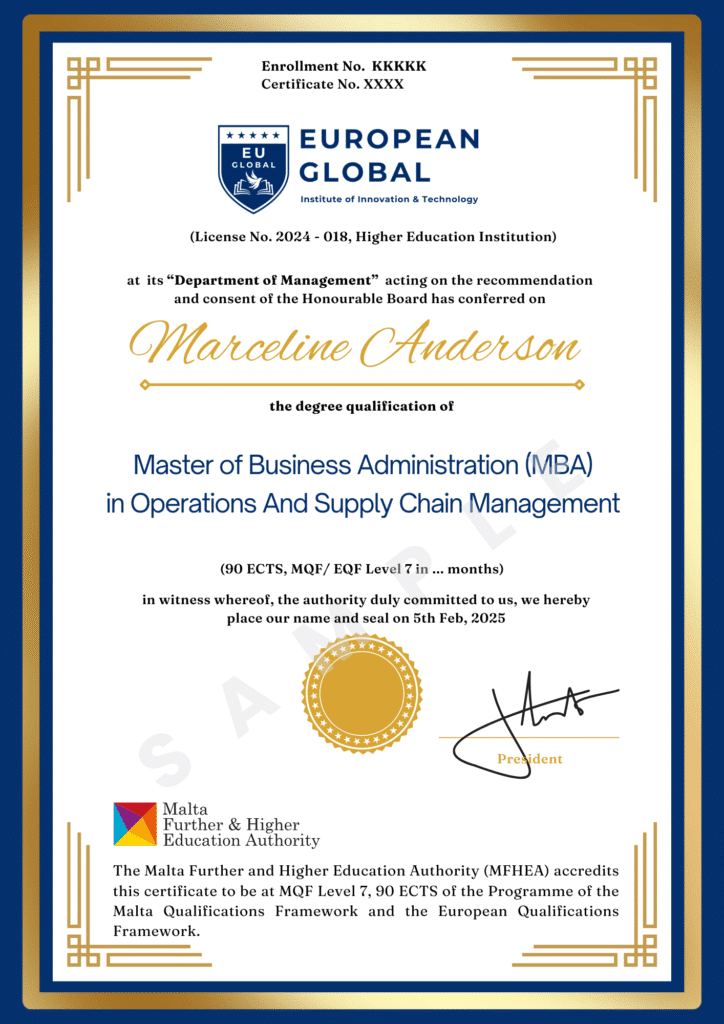

Dr. Sylvester Aighobahi
Faculty Member, Docenti Global Business School
Supply Chain Director | Business Optimization Leader
Dr. Sylvester Aighobahi is a faculty member at Docenti Global Business School (DGBS) and an accomplished Supply Chain Director with expertise in demand and supply planning, logistics, inventory management, procurement, and project management.
He currently serves as Head of Planning and Business Optimization at Grand Cereals Limited, bringing over a decade of experience managing end-to-end supply chain operations. His career includes leadership roles at Henkel and British American Tobacco, where he directed regional supply chain strategies across West Africa.
Dr. Aighobahi holds a Master’s in Procurement, Logistics, and Global Supply Chain Management from the University of Salford (with Merit) and is pursuing a DBA in Strategic Management at EMAS Business School.
Known for his strategic insight and results-driven leadership, he continues to inspire excellence and innovation in global supply chain management.

DR BIODUN ARIYO
Faculty Member, Docenti Global Business School
Corporate & Investment Banker | Trade Finance Expert
Dr. Biodun Ariyo is an accomplished Corporate and Investment Banker and currently the Acting Group Head, Corporate Banking and Structured Finance at Providus Bank. With over 18 years of experience, he has held key roles at UBA, Ecobank, Oceanic Bank, and FirstBank, specializing in Structured Trade Finance, Treasury, and Corporate Banking.
He has led major trade finance deals across Africa, Europe, and the Middle East, earning recognition as a Trade Finance expert and frequent speaker at international conferences.
Dr. Ariyo holds a B.Sc. in Economics (Best Graduating Student, University of Ilorin) and an MBA from Business School Netherlands, and is pursuing a Ph.D. at Bodhisastra University, Florida. He is a Fellow of the Institute of Credit Administration and a Member of the Chartered Institute of Bankers of Nigeria.

DR CHIZOBA NWABUNIKE
Faculty Member, Docenti Global Business School
Dr. Chizoba Nwabunike is a passionate and accomplished marketing and business leader with over 20 years of experience working across top brands in FMCG, betting, telecom, and fintech. Known for her creativity and strategic thinking, she has successfully led brand turnarounds and driven strong business growth. She holds a PhD in Business Administration, an MSc in Innovation Marketing, and an Executive MBA. As Managing Director of Rue Sage Media and Osis Foods Limited, and a Fellow of CIM, she blends deep academic knowledge with real-world leadership and executional excellence.
Tuition : 4, 000, 000
Payment structure : Full & Installmental payment structure
COURSE CONTENT (CORE MODULES 30 ECTS)
Module 1: Management and Organisational Dynamics (3 ECTS, 75 Hours)
- This module offers a thorough analysis of management practices and the intricacies of organizational dynamics within modern business environments. It underscores the critical role of management in shaping organizational behaviour, culture, and overall effectiveness. Through a balanced integration of theoretical frameworks and practical applications, students will cultivate a deep understanding of strategies to navigate and influence both internal and external factors affecting organizations. This module, offered under the curriculum of Docenti Global Business School, is recognized for WES accreditation and is part of an Online Degree program adhering to European Degree standards, ensuring a globally applicable and flexible educational experience.
Module 2: Managing Financial Resources and Performance (3 ECTS, 75 Hours)
- This MBA module is designed to provide an in-depth examination of the theories and contemporary practices related to financial reporting, managerial and cost accounting, analysis, and valuation across organizations of varying sizes and scopes. Students will acquire the skills necessary to develop a structured framework for utilizing accounting theory, practices, and tools in the management and leadership of organizations. Offered under the curriculum of Docenti Global Business School, this module also emphasizes the application of financial standards and ratios to analyze financial statements and reports for diverse organizational types, including for-profit, non-profit, and public entities.
- This module emphasizes professional development by requiring students’ active engagement with an extensive range of materials, activities, and resources to analyze financial data for constructing risk assessments, conducting valuations, forecasting activities, and reporting financial results. It also provides students with in-depth knowledge of preparing financial statements and interpreting accounting reports. Furthermore, this module is recognized for WES accreditation and forms part of an Online Degree program designed to meet European Degree standards, ensuring a globally recognized and adaptable academic qualification.
Module 3: Strategic and Digital Marketing (3 ECTS, 75 Hours)
- In today’s evolving digital landscape, businesses must continuously refine their marketing strategies to effectively engage consumers and achieve sustainable growth. The Strategic and Digital Marketing module equips MBA students with advanced knowledge and expertise to address the complexities of digital marketing while leveraging technological innovations to secure a competitive advantage. This module provides an in-depth exploration of digital marketing frameworks, tools, and industry best practices, with a focus on strategic decision-making and management within the context of the digital age. It underscores the seamless integration of digital marketing within overarching business strategies, demonstrating how data-driven insights can enhance marketing decisions, strengthen customer engagement, and optimize organizational performance. Furthermore, this module is accredited for WES accreditation and forms part of an Online Degree program designed in accordance with European Degree standards, ensuring a globally recognized and academically rigorous qualification.
Module 4: Project and Operations management (3 ECTS, 75 Hours)
- Project and Operations Management constitutes a vital discipline in business, concentrating on the efficient and effective administration of processes and projects to attain organizational objectives. This MBA module is meticulously designed to provide students with comprehensive knowledge of the principles, tools, and methodologies critical for managing projects and operations across diverse industries.
- This module encompasses essential topics including project management methodologies, operations strategy, process optimization, quality management, and supply chain management. It provides students with the expertise to plan, execute, and oversee projects, ensuring their completion adheres to predefined timelines, scopes, and budgets. Additionally, the module offers a detailed examination of operational management, emphasizing the critical role of aligning operational capabilities with strategic objectives to enhance productivity, ensure quality, and improve customer satisfaction. Furthermore, this module is accredited for WES accreditation and forms part of an Online Degree program designed to meet European Degree standards, ensuring students obtain a globally recognized and academically rigorous qualification.
Module 5: Financial Markets & Valuation (3 ECTS, 75 Hours)
- This MBA module is designed to provide students with critical exposure to finance-related challenges commonly encountered at the board level within organizations. It is structured to enable students to collaborate confidently with finance and accounting professionals in the industry. By the conclusion of this module, students will have developed a solid foundation in financial analysis and corporate financial theory, equipping them to address the principal financial challenges they are likely to face in their professional roles. The financial topics covered include issues relevant to both the private and public sectors, with a strong emphasis on a global perspective. Furthermore, this module is accredited for WES accreditation and forms part of an Online Degree program aligned with European Degree standards, offering students a globally recognized and academically robust qualification.
Module 6: Strategic Decision Making: Dealing with Business Complexity (3 ECTS, 75 Hours)
- This MBA module aims to provide students with comprehensive exposure to organizational strategies that encompass a range of activities, emphasizing the importance of managerial consistency and commitment in executing a chosen strategy. Students will gain insights into the challenges presented by their organization’s environment and develop the ability to identify and capitalize on potential sources of competitive advantage. The module equips students with knowledge of organizational resources and capabilities, addressing how organizations compete for limited resources and attract customers to their products or services.
- This module, The Dynamics of Strategy, serves as the fifth compulsory stage of the MBA programme, offering students a thorough understanding of strategy through real-life examples and case study analyses. By engaging with practical scenarios, students are encouraged to critically reflect on and refine their comprehension of strategic concepts. Additionally, this module is accredited for WES accreditation and is part of an Online Degree programme structured in alignment with European Degree standards, providing a globally recognized and academically rigorous educational experience.
Module 7: Economics for decision-making (3 ECTS, 75 Hours)
- This module is designed to equip MBA students with a solid foundation in economic principles and analytical tools essential for making informed business decisions. By integrating WES-accredited microeconomic and macroeconomic concepts, students will develop the ability to analyze market dynamics, evaluate the impact of economic policies, and apply economic reasoning to address real-world business challenges effectively. As part of an Online Degree program aligned with European Degree standards, this module emphasizes practical decision-making skills. Students will be prepared to interpret complex economic data, assess risks, and devise strategies that enhance organizational performance within the global economic environment.
Module 8: Ethical Leadership and Governance (3 ECTS, 75 Hours)
- This module offers a comprehensive examination of the principles and practices of ethical leadership and governance within contemporary business environments. It explores the moral obligations of leaders and the governance structures that facilitate ethical decision-making across organizations. As part of an Online Degree program designed in alignment with European Degree standards and recognized for WES accreditation, this module emphasizes the cultivation of ethical leadership attributes, the enhancement of critical thinking skills, and the practical application of governance standards in navigating complex and dynamic business scenarios. Through the integration of case studies, theoretical frameworks, and practical insights, students will develop a profound understanding of how to lead with integrity and uphold exemplary governance within their organizations.
Module 9: Corporate Sustainability and Leadership (3 ECTS, 75 Hours)
- This module provides an in-depth analysis of corporate sustainability, seamlessly integrating it with leadership practices critical for advancing sustainable business strategies. It examines the interplay between environmental stewardship, social responsibility, and economic performance, emphasizing the pivotal role of leaders in cultivating a culture of sustainability within organizations. As part of an Online Degree program recognized for WES accreditation and designed in alignment with European Degree standards, this module offers students the opportunity to engage with theories, models, and practical case studies. By doing so, students will develop the insights necessary to understand how impactful leadership can support sustainable development goals, ensuring enduring business success while addressing global challenges such as climate change, resource scarcity, and social equity.
Module 10: Business Communication for Competitive Advantage (3 ECTS, 75 Hours)
- In today’s dynamic and globalized business environment, effective self-expression plays a crucial role in individual success, while strong communication skills are fundamental to organizational achievement. This advanced university-level module is designed to enhance the essential soft skills required for both personal and professional development. By combining contemporary theoretical perspectives with renowned case studies of their real-world applications, the module equips students with the tools needed to excel in communication and leadership within modern business contexts.
- Effective communication is an essential pillar of leadership, collaboration, and strategic decision-making in contemporary business environments. This module focuses on cultivating oral, written, and interpersonal communication skills that are specifically tailored to diverse professional contexts. As part of an Online Degree program aligned with European Degree standards and recognized for WES accreditation, this module provides students with the tools to craft persuasive messages, navigate cross-cultural communication challenges, and leverage digital technologies to enhance business interactions. Upon completion of this module, students will possess the ability to communicate with clarity, confidence, and impact, positioning them for success in leadership roles and collaborative settings.
COURSE CONTENT (HOLISTIC MANAGEMENT PERSPECTIVE 30 ECTS)
Pathway Module 1: Logistics Management (6 ECTS, 150 Hours)
- The Logistics Management course serves as a key elective within the MBA program, offering students a comprehensive understanding of the principles, strategies, and practices essential for effective logistics management in global supply chains. As businesses navigate increasingly complex and interconnected systems, mastering logistics becomes crucial for ensuring the efficient movement of goods and services between suppliers and customers. This course, accredited for WES accreditation and offered as part of an Online Degree program aligned with European Degree standards and the curriculum of Docenti Global Business School, addresses critical topics such as transportation management, inventory control, warehousing, distribution, and the integration of logistics with other supply chain functions. Through a blend of theoretical frameworks and practical applications, students will acquire the expertise needed to optimize logistics operations, reduce costs, and improve customer satisfaction.
Pathway Module 2: Supply Chain Planning, Modelling and Analytics (6 ECTS, 150 Hours)
- Supply Chain Planning, Modelling, and Analytics is a vital component of the MBA curriculum, designed to provide students with advanced expertise in designing, optimizing, and managing intricate supply chains within a globalized business environment. This WES-accredited course, offered as part of an Online Degree program aligned with European Degree standards and the curriculum of Docenti Global Business School, addresses critical elements of supply chain management, including demand forecasting, supply chain network design, inventory management, and the application of analytical tools and techniques for effective decision-making. By integrating strategic planning with data-driven methodologies, the course equips students to tackle the complexities of contemporary supply chains and to propel business success through innovative and efficient supply chain solutions.
Pathway Module 13: Procurement and Supply Chain Management (6 ECTS, 150 Hours)
- The aim of this module is to provide learners with a comprehensive understanding of procurement and supply chain management processes. It is structured to help students conceptualize supply chain and procurement from both strategic and technological perspectives, emphasizing the significance of procurement as a critical component within the supply chain management framework. As part of an Online Degree program accredited for WES accreditation and aligned with European Degree standards under the curriculum of Docenti Global Business School, this module enables learners to identify the role and complexities of procurement processes. Upon completion, students will acquire knowledge of diverse tools and techniques essential for evaluating sourcing options, preparing them to navigate the challenges of modern procurement practices effectively.
Pathway Module 4: Supply Chain and Operations Strategy (6 ECTS, 150 Hours)
- This MBA module is designed to provide students with a thorough understanding of supply chain and operations management processes, offering insights into the scope, significance, and critical requirements of both operational strategy and supply chain management. As part of an Online Degree program accredited for WES accreditation and aligned with European Degree standards under the curriculum of Docenti Global Business School, this module emphasizes the interconnectivity between supply chain and operations, highlighting their combined impact on organizational effectiveness. For modern managers, the module underscores the importance of strategic decision-making in sustaining global supply chains and navigating international markets. By exploring the multifaceted contexts of supply chain and operational strategy, learners will enhance their business acumen and develop informed decision-making capabilities, ultimately driving success within their organizations. This module is offered as an elective component of the MBA program.
Module 5: Sustainable Operations Management (6 ECTS, 150 Hours)
- This MBA module is designed to equip learners with a comprehensive understanding of the tools, techniques, and procedures integral to sustainable operations management. Offered as part of an Online Degree program accredited for WES accreditation and aligned with European Degree standards under the curriculum of Docenti Global Business School, this module provides students with in-depth knowledge of the key aspects of sustainability and its critical role within business management. Learners will also examine the various factors that enable or impede the adoption of sustainable practices in operational processes, fostering the analytical and strategic skills necessary to drive sustainability in organizational contexts.
COURSE CONTENT (RESEARCH & INNOVATION MODULES 30 ECTS)
Module 1: Research & Innovation Module : Innovation Management and Design Thinking for Entrepreneurs (6ECTS, 150 Hours)
- This module equips MBA students with essential competencies and knowledge required to foster innovation and apply design thinking in entrepreneurial ventures. Offered under the curriculum of Docenti Global Business School, this WES-accredited module forms part of an Online Degree program aligned with European Degree standards. It explores the core principles of innovation management, the processes for bringing novel ideas to market, and the strategic application of design thinking to address complex business challenges. By integrating theoretical insights with practical applications, this module enables students to develop a mindset characterized by creativity, experimentation, and customer-centric design. Upon completion, students will be fully prepared to spearhead innovation initiatives and deliver sustainable value within entrepreneurial contexts.
Module 2:Research & Innovation Module : Data-Driven Research and Analytical Insights (6 ECTS, 150 Hours)
- This module is designed to equip MBA students with the foundational skills and knowledge essential for conducting rigorous and impactful research across a variety of disciplines. Offered under the curriculum of Docenti Global Business School, this WES-accredited module is an integral part of an Online Degree program aligned with European Degree standards. Through this module, students explore the core principles and techniques necessary for designing, implementing, and interpreting research studies. They engage with topics such as formulating research questions, selecting suitable data collection methods, understanding sampling techniques, and mastering both qualitative and quantitative data analysis methods. Additionally, the module addresses ethical considerations, emphasizing responsible and transparent research practices. By the conclusion of the module, students will have developed proficiency in constructing comprehensive research proposals, conducting thorough literature reviews, and presenting findings with precision and clarity, thereby preparing them to contribute meaningfully to academic and professional research endeavors.
Module 3: Research & Innovation Module: Capstone Consulting Project (18 ECTS, 450 Hours)
- This module is designed to equip MBA students with the foundational skills and knowledge essential for conducting rigorous and impactful research across a variety of disciplines. Offered under the curriculum of Docenti Global Business School, this WES-accredited module is an integral part of an Online Degree program aligned with European Degree standards. Through this module, students explore the core principles and techniques necessary for designing, implementing, and interpreting research studies. They engage with topics such as formulating research questions, selecting suitable data collection methods, understanding sampling techniques, and mastering both qualitative and quantitative data analysis methods. Additionally, the module addresses ethical considerations, emphasizing responsible and transparent research practices. By the conclusion of the module, students will have developed proficiency in constructing comprehensive research proposals, conducting thorough literature reviews, and presenting findings with precision and clarity, thereby preparing them to contribute meaningfully to academic and professional research endeavors.
Accreditation and Recognition


